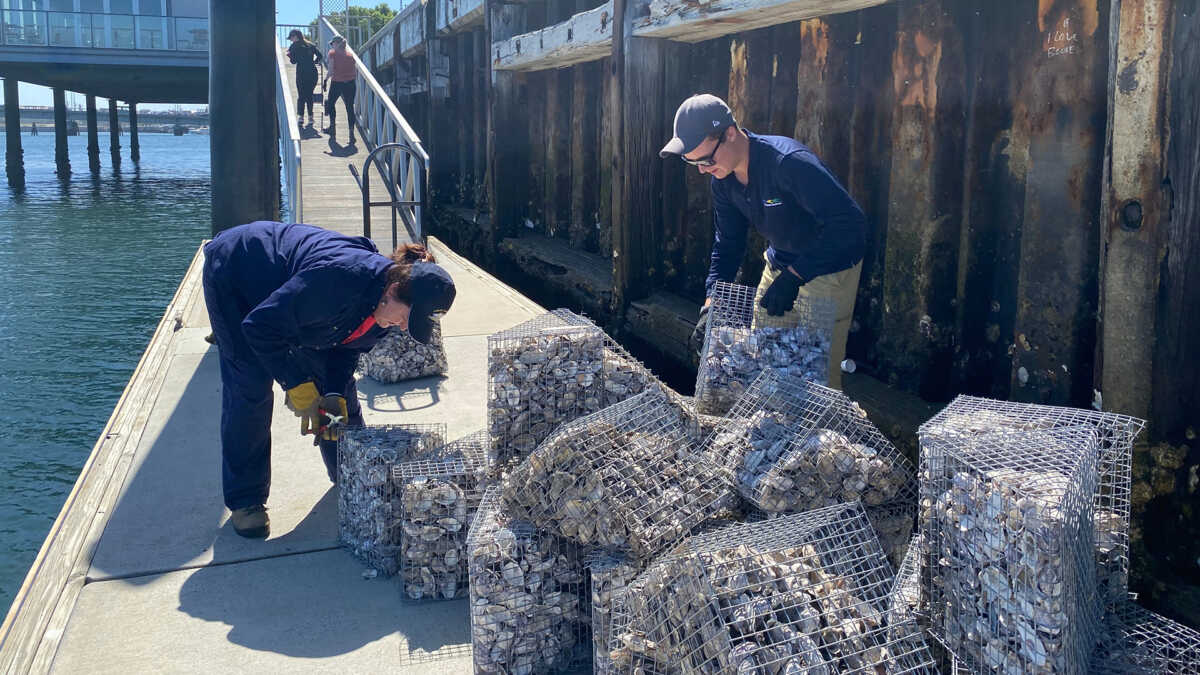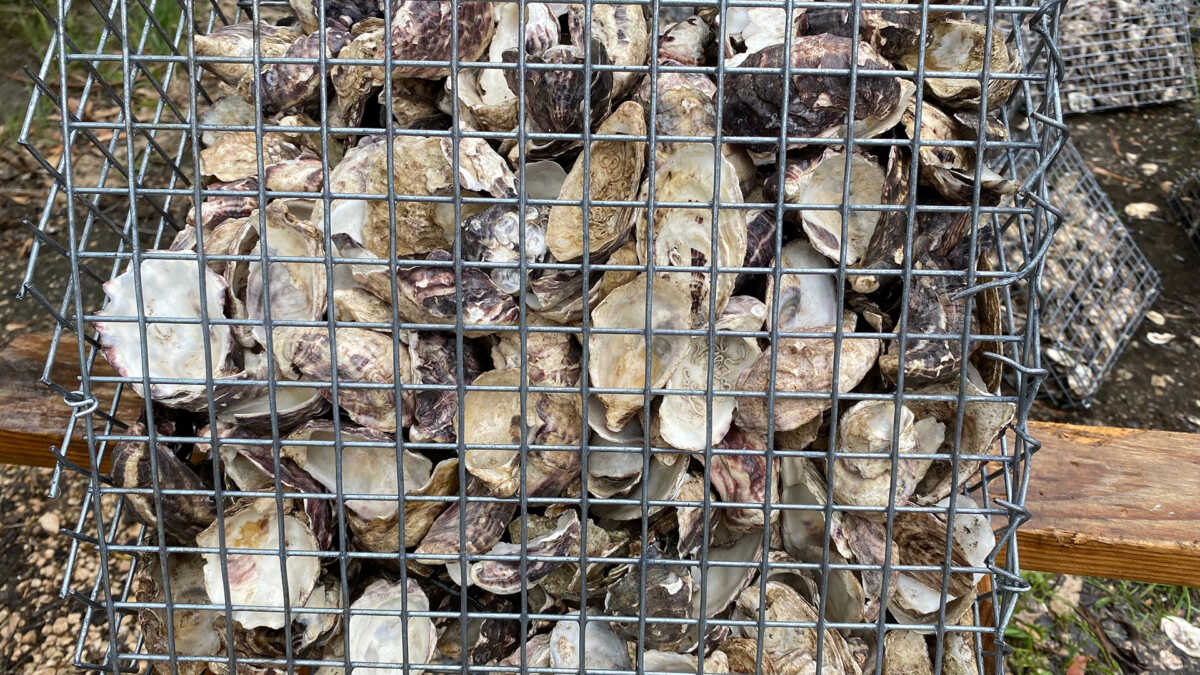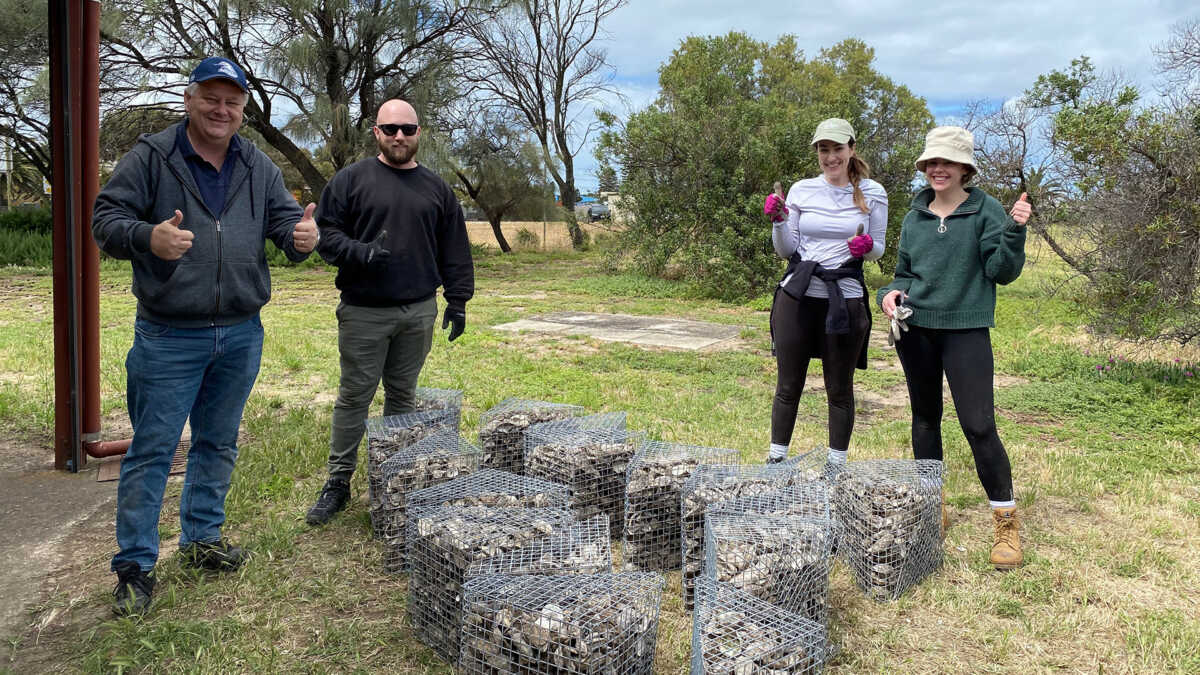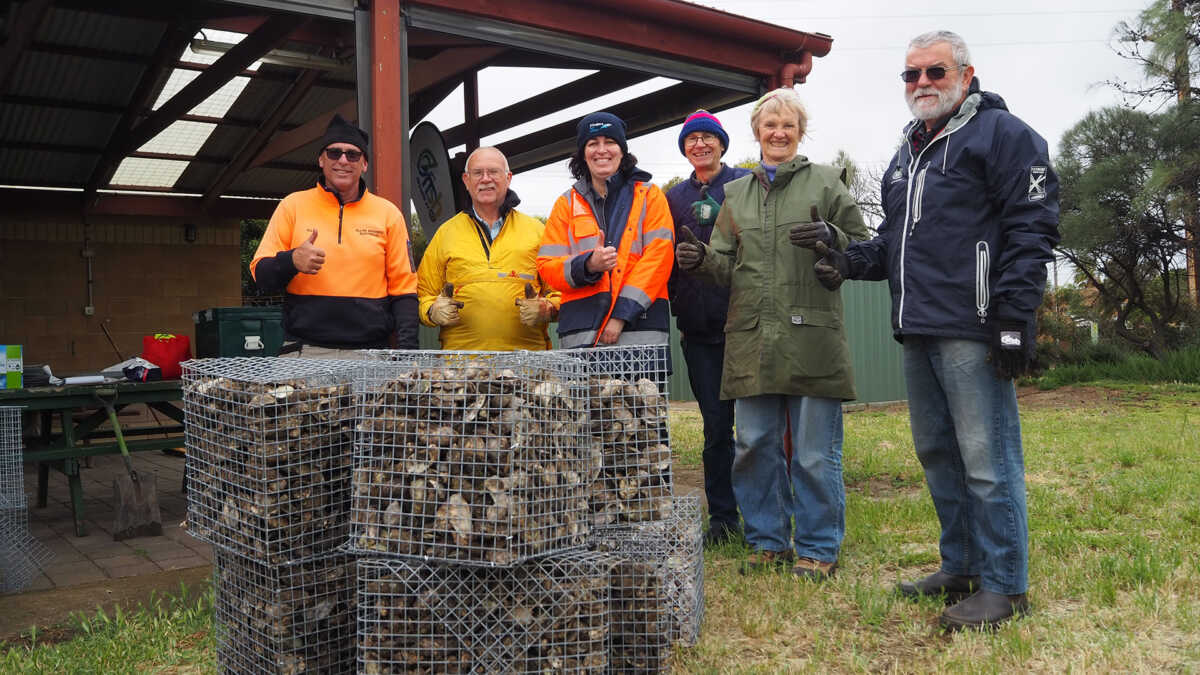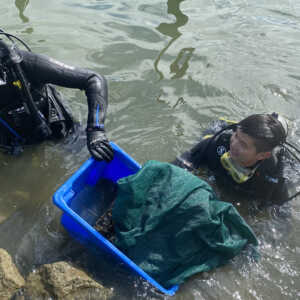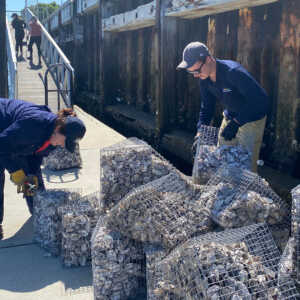27 May 2023 | New oysters in the Port River (but none you can eat)
Research underpins and informs everything we do – it is part of our OzFish DNA. The pioneering shellfish restoration project in the Port River in Adelaide is no exception. This week, students from the University of Adelaide’s School of Biological Sciences conducted the first monitoring activities on the Robust Oyster baskets (ROB’s) that were installed in the Port River, South Australia, in December last year (2022).

